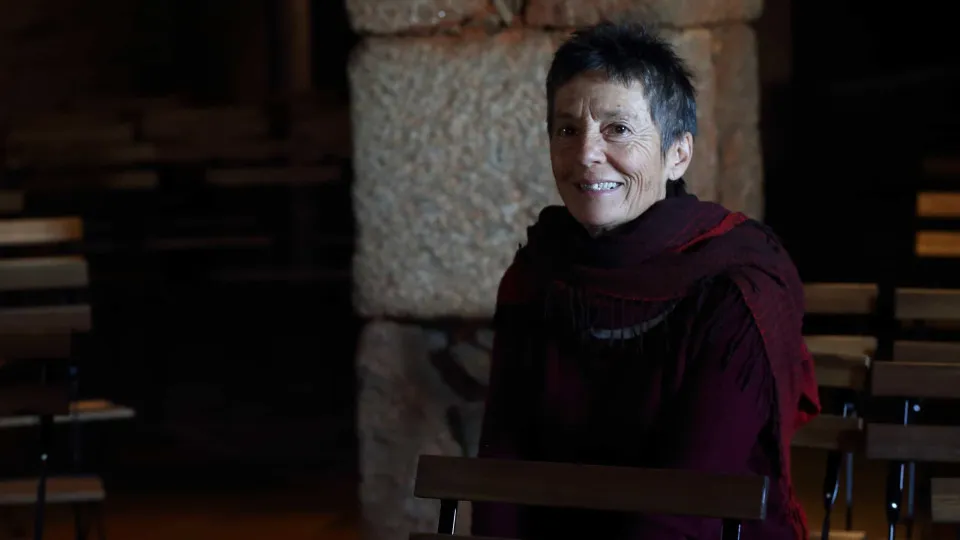Many Portuguese citizens visit cemeteries on November 1 each year, following tradition to remember those who have passed away. Coinciding with All Saints’ Day, the Portuguese Psychologists’ Association (OPP) has released a scientific and informative guide entitled “Let’s Talk about Grief,” aiming to help people understand grief, its manifestations, and ways to navigate it with compassion, support, and psychological balance.
“Grief is a natural reaction to adapting to a new reality when a loss occurs. Losses are inevitable in life, whether from the death of a loved one, loss of health, employment, a relationship, or even a life project. Thus, grief is a universal reaction, yet deeply personal,” the OPP stated in a communication.
The organization emphasized that “each person experiences grief at their own pace, uniquely,” without any predetermined timeline.
“Some people cry, others do not; some prefer silence, while others need to speak. The key is recognizing that suffering is a natural part of adapting to loss. Everyone is entitled to their grieving process,” it added.
In the 40-page guide, the organization reiterated that “grief is a process that helps us acknowledge something has irreversibly changed,” and “its purpose is not forgetting, but reconstructing a new meaning in life.”
Visible and socially recognized losses, like the death of a family member or a child, are acknowledged. However, there are invisible and socially marginalized losses, such as the death of a pet, the end of a friendship or romantic relationship, and even gestational and neonatal losses.
“These experiences, while not always valued by society, can result in real and profound grief that deserves recognition and care. […] Sometimes, we don’t even realize we’re experiencing a grieving process,” the OPP explained.
The document also dedicates a section to children and adolescents, detailing how they perceive death and how they can be appropriately supported. According to the Association, “children can have very variable reactions to death and grief, depending on their age and level of understanding of these concepts.”

Ana Catarina Infante, founder of the Doulas of Life’s End Community, is featured in this Monday’s edition of Vozes ao Minuto.
Daniela Filipe | 09:45 – 18/09/2023
“Delivering news of someone’s death and supporting a child through grief is delicate. The way information is conveyed can impact their well-being and ability to cope with the loss,” the Association warned.
The organization stressed the importance of age-appropriate language and simple examples. Do not fear the word death, but avoid metaphors and euphemisms, as they “can confuse the child and create unrealistic expectations.” Examples such as “he’s sleeping” or “he went to heaven” are commonly used with children in these situations.
“During adolescence, death is seen as a natural, inevitable event, although distant from personal reality. However, the death of someone close can profoundly shake their worldview and sense of security,” the organization pointed out.
How then can one cope with grief?
To cope with grief, the OPP recommends participating in funeral rituals, which “are essential to adapting to the idea of death […] and initiating the process of developing a new internal relationship with the deceased,” benefiting adults, children, and adolescents alike. Additionally, it suggests allowing oneself to feel and acknowledge emotions, as “the unpleasant emotions that grief entails are part of the process.” Nonetheless, avoid excessive isolation. According to the guide, “remembering and talking about the deceased can help reduce loneliness and sadness, even when the longing is overwhelming.”
Therefore, do not feel ashamed or afraid to seek help and be tolerant with yourself, since “the grieving process can be unpredictable.” Don’t forget to take care of yourself and maintain a routine, which can “improve the sense of security and hope regarding the course of life.”
Other strategies include writing a farewell letter, keeping a grief journal, or even composing a song. Visiting the cemetery or another symbolic place can help, as can creating a playlist with songs linked to the person or happy moments shared together.
Do not forgo doing something in the person’s honor or celebrating their birthday. Remember, “the purpose of grief is not forgetting but creating a new connection.” In some cases, joining a support group could be beneficial for sharing experiences.

Notícias ao Minuto spoke with Mariana Abranches Pinto, president of the association Compassio, which focuses on “the areas of caregiving, illness, aging, social isolation, solitude, death, and grief, based on compassion.”
Daniela Filipe | 13:21 – 03/04/2025
How can you help someone grieving?
Besides listening actively and empathetically, be mindful of what (not) to say. Well-intentioned, yet clichéd phrases like “they’re in a better place now,” “they’re no longer suffering,” or “at least it wasn’t unexpected” may sound dismissive or minimize the grief. When unsure of what to say, it’s better to be honest: “I don’t know what to say, but I’m here for you.”
Grief extends over time and is not confined to the wake or funeral. Indeed, those grieving might need support for longer periods and might not be able to ask for help. Therefore, taking the initiative is crucial—whether by preparing meals or assisting with grocery shopping, for instance—and even if they do not respond to invitations or messages, continue showing your presence.
If the person “remains deeply saddened and struggles to adjust to the new reality or resume normalcy for too long, suggest seeking professional help.”




